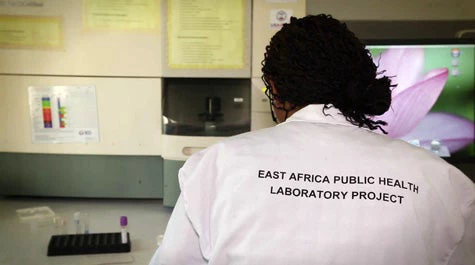As we enter the second year of the “Stop TB in my lifetime” campaign, it is time to take stock of where we are and look at the key priorities for attaining this worthy goal. Beyond the banners urging the world to stop this curable disease are the faces of those afflicted by tuberculosis or whose lives were cut prematurely short. These faces remain etched in my memory and reinvigorate my drive to stop TB.
Their stories are strikingly similar. By the time they arrive at health facilities, many patients have persistent coughs, suffer from severe anemia, and are unable to work or go to school. They often seek care at an advanced stage of the disease which increases the risk of infecting others, and makes treatment more complicated and costly. They lack access to the latest technologies for accurately diagnosing HIV-related TB or multi-drug resistant strains and may go undiagnosed, continuing to transmit the disease.
On this World TB Day we need to recognize Africa’s achievements. The continent is on track to attain the MDG target of reducing new TB cases even though more needs to be done to reduce deaths from TB. Progress on TB/HIV integrated care has been remarkable in some countries, like Kenya and Rwanda, with the systematic testing of TB patients for HIV (2012 Global Tuberculosis Control Report, WHO, 2012.). Research on point-of-care testing, effective vaccines, and new diagnostics is well underway. Still, more needs to be done to work towards a world free of TB.
Early and accurate diagnosis is a critical priority for containing the spread of TB. Under the World Bank-funded East Africa Public Health Laboratory Networking Project, the East African Community member states (Kenya, Rwanda, Tanzania, Uganda and Burundi) are working together to strengthen laboratory capacity and improve access to the latest molecular diagnostic technologies. The roll-out of the new GeneXpert machine in Kenya is bringing critical diagnostic services to underserved groups in remote cross border areas (Malindi, Wajir, Busia), revolutionizing TB care as patients receive accurate lab results within hours and can be placed on an appropriate drug regimen, saving households and health systems time and money. The upgraded public health laboratories will serve other patients as well as public health officials requiring timely information about new pathogens, illustrating how the project is tackling both a key dimension of communicable disease control and a neglected aspect of health systems.
This short film set in Kenya captures the essence of what the project is trying to accomplish.



Join the Conversation